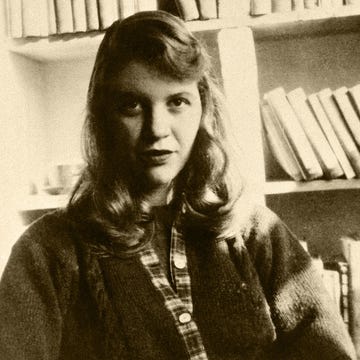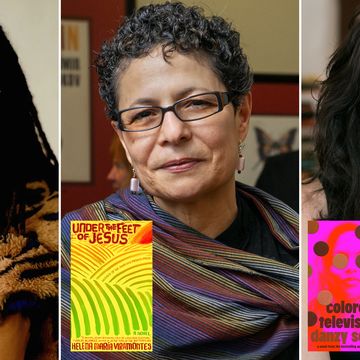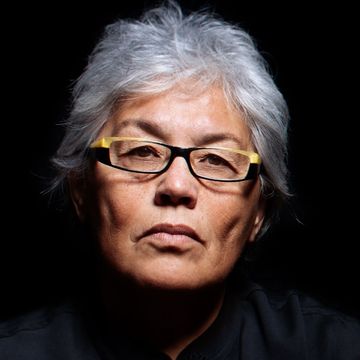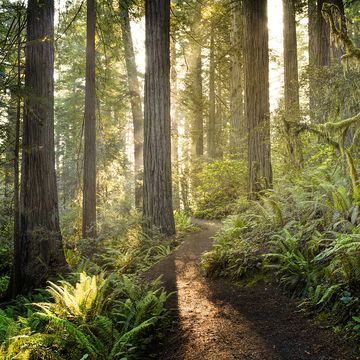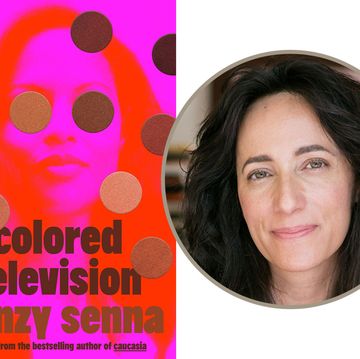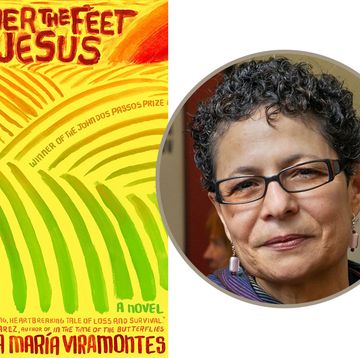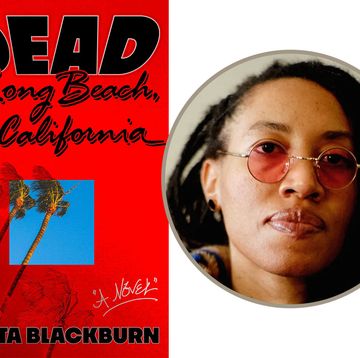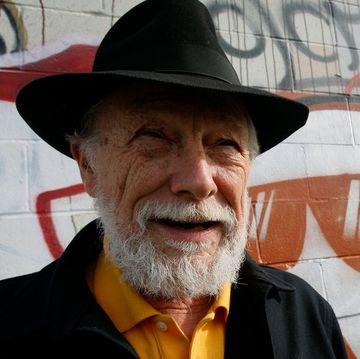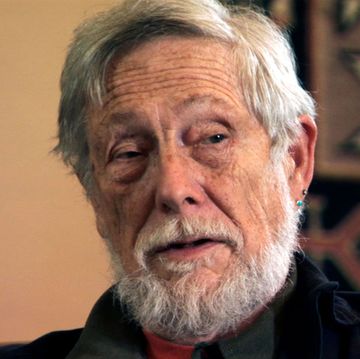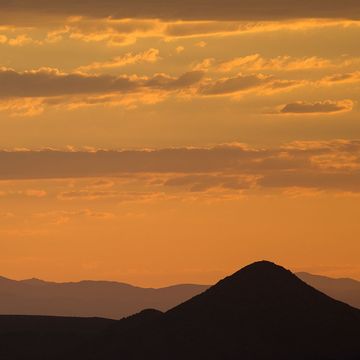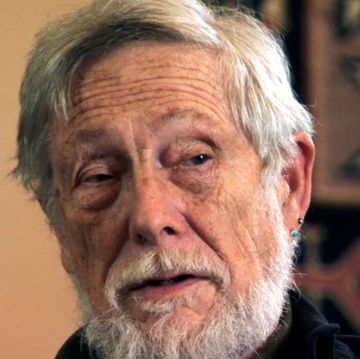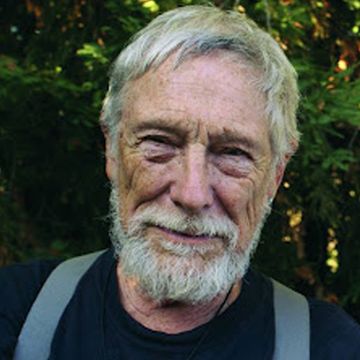David Ulin: [00:00:00] Hello everyone. Good evening. And welcome to the first meeting of the Alta book club, the Alta California Book Club [laughs]. I’m David Ulin. I’m the books editor of Alta Journal. And I’m delighted to welcome you all to this evening’s event. Let me tell you a little bit about what, what the book club is: it’s an opportunity for us to rethink the book club as a kind of ongoing process involving events, such as this, involving posts and interviews and discussions on the Alta website, and to really think about digging deep into a book a month and in the process thinking about what California literature is and what California literature means.
The book club idea grew out of an essay by John Freeman, who will be moderating the event, that was published earlier this year about the California cannon in which John makes the case. And I completely agree with him. The California is the most vibrant literary landscape in the United States at the moment and has been for quite some time. If that sounds like a little a little California centric, I think we can embrace the power and vibrancy of California writing and writers. And that’s, we intend to do beginning with this, with the evening’s events.
For those of you who aren’t familiar with Alta, it’s a quarterly journal with a big focus and a profound focus on literature, book coverage books in general. With coverage in the quarterly magazine with weekly books reviews, um, and with, uh, with the book club, um, with live events. Yeah, it’s a, it’s a real kind of clearing house and center for California and West coast, um, literary inquiry. Um, thank you all. Um, thank you. You know, as I say, thank you all for being here. I want to, before we get to the event, I want to thank our partners.
That includes bookstore partners and other presenting partners. Book passage, Book Soup, Books Inc., Bookshop.org, the Huntington Institute of California in the West, the Los Angeles Public Library, Narrative Magazine, San Francisco Public Library, Vroman’s Bookstore in Pasadena and Zyzzyva. And I just want to put in a word in this particular moment, please support independent book sellers and please support writers.
The pa- the selections for the California book club. One book a month, we’ll be talking about the sl- the next two selections at the end of the tonight’s program, but there is a selection panel comprised of a number of people. And I just want to thank, um, all of them for their participation as well. That panel includes John Freeman. It includes myself. It also includes the writers Danzy Senna, Lynell George, Oscar Villalon, Marissa Lopez and Paul Yamazaki, one of the most astonishing and important book sellers in the United States.
We will be announcing, um, signed book away, a book giveaway. Winners will be emailed tomorrow morning. If you are one of the people who has won a, a free signed book, but you must be a registered California Book Club member to win. So if you’re not currently registered, please head over to Californiabookclub.com right now and sign up and you’ll also get a gift of four California Book Club book place. So without further ado, let me introduce John Freeman and he will take us away. John is a writer, poet critic, editor of the Journal Freeman’s, Executive Editor of Lit Hub. I’m going to pass it over to John now. So welcome again. Thank you for being here and, John, all yours.
John Freeman: [00:06:03] Thank you so much, David. It’s really nice to see your face. I think all of us here really enjoying the fact that a book club… Normally means that you drive over to Berry’s house with some orders, um, and hopefully see each other but now we’re going to do it this way. Um, thank you to everyone. And also for, um, taking this, uh, this essay of mine and running with it. When I wrote this piece that David mentioned, uh, it was over almost two years ago and Pam Zhang’s book, uh, was a twinkle in the universe’s eye. And if you had to kind of design a book that we would desperately need to read in the autumn of 2020.
The book that might speak to those of us who have had the Berry [inaudible 00:06:46]. A book that might give us some sense of consolation if we’ve had to go to a bank with nothing in our pockets. A book that, you know, holds us in the warm embrace of adventure and yet reminds us that adventure has often been a fig leaf for theft. Uh, a book that pays tribute to California’s awesome and terrifying the precocious landscape. I think you’d be really hard pressed to come up with a book more elegantly made to all of those tasks than Pam Zhang’s, How Much of These Hills Is Gold?
Set at the end of the California Gold Rush, the book tells the story of two sisters name, Sam and Lucy. One [inaudible 00:07:30], one [inaudible 00:07:30]. One 11 and dressed as a boy, the other 12 and wary of watches. They’re the daughters of a prospect or tar and coal miner, John grease stricken drinker, was cajoled his family into the hills with tales of gold, the girls and his wife, their mother, who later disguise herself to go into the mines when he couldn’t and who had carried a chest across an ocean to America. More than 30,000 people who came to California in the 1850s during the gold rush were from China.
And here’s a book about people who are more than that number. Sam and Lucy animate it like twin heroines, twined by grieves. They searched for a place to bury their father who dies on page one. Raised by a prospector who dug in the dirt. They looked for the right patch of dirt to make his permanent home. What makes a home a home? Pam Zhang uses in this book, as we arc into the past and we hear stories and adventures and the losses which made these girls. We’ve watched them fan out across the state. As they become ghosts, outlaws children, searchers encountering as many sirens as Odysseus on his way home.
Pam Zhang is our own kind of Odysseus. She reportedly finished this novel on a modern rail in Thailand. Something I’ll ask her about in a second. She’s a restless traveler. She’s lived in more than a dozen cities around the globe. She grew up in California. She was educated in the East but we won’t hold this against her. And she has a creative writing degree from Iowa University where she began, I think maybe a long time ago, How Much of These Hills is Gold? It’s been long listed for the Booker Prize. It’s put her on the 535 list of the National Book Foundation and the Center for Fiction David writing award.
I suspect there’ll be more awards and anyone who can write a sentence like this deserves all she can get. From a top Nellie the Hills roll by with a speed that makes them liquid. The ocean [mass 00:09:37] spoke of [inaudible 00:09:38] and yellow grass. Please join me in welcoming Pam Zhang.
Pam Zhang: [00:09:47] Hi John and hello everyone who’s joining us tonight. So pleased to be here.
John Freeman: [00:09:52] Oh, it’s good to see your face. Where are you joining us from?
Pam Zhang: [00:09:54] Um, so I’m actually in [Confession 00:09:57], not in California at the moment. I moved recently to the Seattle area to sort of, uh, sit out the winter since we just like don’t know where the world is headed anymore. But I hope to be back in California soon.
John Freeman: [00:10:09] Me too. I actually am doing here from New York. Although, you know, fifth generation Californian.
Pam Zhang: [00:10:15] I guess [inaudible 00:10:15] it goes to say that California doesn’t leave you. Uh, both of us aren’t there but it’s still big in our minds.
John Freeman: [00:10:21] Yeah. Um, I want to ask you a first question about that is, what is it about the West and about California, maybe in particular that begs narration?
Pam Zhang: [00:10:31] Yeah, I know we talked about this a little bit, John. But just from the get go. So I kind of grew up in California. My family, we were immigrants and the first place we landed in the US was actually Kentucky. So the first major trip of my life that I remember was this four day road trip that my family took fro- all the way from Kentucky to California Crossing. I don’t even know how many States. Um, and I just saw this… I was able to see this shift in the landscape as we traveled in Kentucky on the East.
You know, you have this sense there is the sky but you have hills, you have trees, you have things sort of in the periphery or blocking it. And in California, the farther you go West, it’s just, it’s all sky. It feels like the sky is sort of pinning you down and you just get this sense of the immensity of the landscape. How spectacular and also how fearsome it is that I don’t think I had gotten quite before then.
John Freeman: [00:11:29] Yeah. I wonder when you, when we were talking, you described waiting for a school bus in Salinas, California. Um, and I, I wonder, you know, I moved to California and, and just great as well. Um, and I, I, I wonder if you could describe the difference in the landscape?
Pam Zhang: [00:11:46] Yeah. A lot of it was just, was the sky. The, the sky, and the hills are just enormous and they dwarf human beings. I think, so I live in Salinas, California, which for those of you who don’t know, is I think John Steinbeck’s birth place, or at least the place that he’s spent a lot of his life and brought a great deal about. And so on my way to the bus stop, we would pass these, I think there were strawberry or lettuce fields, and it was just like, you know, a normal small town people going about their lives.
But then as far as I could see, once you get to this part of town, just rolling hills all the way. All the way, as far as the eye can see. And, you know, even in John Steinbeck’s work that I first encountered, I think you saw on the cover of a lot of his novels, right? It was really a cover where the landscape was featured and the people were like these tiny, tiny, tiny dots. Which I think says a lot about the way the, the natural wo- world features, um, as a presence, maybe even a character in sort of the myths of California.
John Freeman: [00:12:44] One of the most beautiful sections of your book is when Lucy gets lost and her father gives her some advice about how to find yourself. And he, he sort of basically says, “Get yourself under this sky and you will be bigger than you could ever be as a person.” And I, I, I feel like this book is a really beautiful kind of, um, orientation of this, of, of space. Uh, the, and many of the things that are orienting Lucy and Sam are stories that their father told them about the States about land, about the animals that used to be there. I wonder if you can talk a little bit about the, the, the inheritance they get from their father in the form of these stories?
Pam Zhang: [00:13:27] Yeah, It’s really interesting. I think, so ever since I wrote this book and sort of have been talking about this book in the world. I realized one thing about myself is that I’ve been using the word mythology more and more loosely, more and more to refer to everything. Because I think I had this really slow process of realizing that a lot of what we’re taught, a lot of the sort of national myths and stories that were taught are not necessarily grounded. In fact, um, and you know, in my childhood preeminent among those national myths was the sort of myth of the American dream, right?
Which is this idea that anybody who comes to this country, whether or not they are an immigrant, has, um, equal opportunity. Has a level playing field in the sense of sort of like go West young man, right? That there is like opportunity and abundance and it never ends. Um, and, you know, I saw the falsity of this in my own family and the older I grew the more I was able to sort of see the falsity and the systems that we have in this country. Um, and, but at the same time, this myth of the American dream is so it’s so enormous in the minds of not only immigrants, but if people in this country.
We can’t seem to shut it. It seems to be part of what people define as being American, even as we see more and more every day. I think, especially in this year, that’s just really, really not true. Um, you know, the, I won’t go on too long about this, but just the amount of wealth that is collected in such a vanishingly few number of people in this country. It’s, it’s really not true for most of us. Um, it’s, it’s, it’s like not true for anybody except the surrounding area, really.
Um, so yeah, I guess that’s a long answer to your question of the sort of like the power of storytelling. I think I’m really interested in the idea of what stories people tell themselves in order to survive and sort of in order to get through to the next day.
John Freeman: [00:15:21] Yeah, so much of this book deals with, you know, missing things. Um, two of its main characters are dead on page one. Many of the animals that are described are missing and or dead. Much of the landscape, the, the gold is gone. Um, and this is in the, the, uh, towards the end of the gold rush. So even the promise of what, um, what, which has lured many of the people there, that is too gone. And I wonder if you can talk about making a story that is not, uh, a dirge. Um, but is basically looking into those absences? You know, what, what did you find when you looked into them? Did you find what you were just describing the stories that people tell to make up for what’s missing?
Pam Zhang: [00:16:12] I don’t think I found enough of those John. Um, that was, it was really interesting. Because when I started this novel, I feel like for most novelists, there’s sort of two answers you give, when people ask you, like, why did you write this book? And one is sort of like the polished answer and after you’ve thought about it a lot. And one is like the true answer. And for me the true answer is I didn’t, you know, sort of set out to write this as like a grand [inaudible 00:16:28] imagining or a rebuke of the wild West fables. That wasn’t in my mind.
I really started this book because, um, I was, yeah, I was living abroad in Thailand at the time and I just woke up one day with these images in my head. And I had recently lost my own father, um, a couple of years prior. And I think up until the time that I wrote this novel, I had been sort of in my writing, exploring that question of grief and mourning but sort of dancing around the edges. And so that morning that I woke up in Bangkok, I was finally ready to sort of face it head on and have it, and have it start this book. Um, so that was, that was really where it began.
John Freeman: [00:17:10] Hmm. Well, it’s a, a beautiful portrait of grief and how people respond differently to it. Um, you know, but I wanna, um, bring in a, a guest here because so much of what the, the world that the book is set in has been kind of missing from literature, um, for too long. And I think one of the exciting things about reading your book is, is watching this period come to life. Um, and the, the historian Gary Noy is the author of Hellacious California.
Which is a kind of rip snorting new book about the birth of the Golden State. Um, can give us, I think, some perspective on what the time was like and what it was like in particular for Chinese prospectors, immigrants and miners who came in that period. Gary, do you want to talk to us a little bit right now?
Gary Noy: [00:18:16] Oh, okay. Um, well let me tell you a little bit about, uh, this remarkable story of the Chinese and the gold country on the gold rush. Uh, as John mentioned earlier during the gold rush period, the height of the gold rush period, which is 1850 to 1855, 300,000 people came to the gold country. And about 10%, just under 30,000, uh, were Chinese. And in the gold country proper, the Chinese presence was significant. 20% of the population was Chinese. 35% of the foreign born population was Chinese. That those numbers dropped dramatically in later years due to the anti-Chinese movement that developed and the Chinese Exclusion Act.
But there were significant numbers of Chinese in the gold country in the early years of the gold rush in particular. And they were subject, uh, to discrimination and restriction and, and to violence. Uh, at the state level, there was very little state law because the state was brand new. Uh, but one law in particular that targeted the Chinese was the Foreign Miners’ Tax. And from 1848 to 1870, there was a tax essentially on every miner who was not a [inaudible 00:19:35] American. That was $20 a month, which would be about $600 today. But the debates of the law indicate that the Chinese were the primary target.
And the Chinese were routinely threatened to the point where it was very common that they had to pay two or three times the, the miners tax monthly. And over the 22 years of the tax, uh, the revenue that was raised was millions of dollars. And the Chinese ended up paying 98% of the total because they were targeted for the tax. Well, that’s on the state level, but on the local level, there were ordinances, uh, that, uh, influenced the Chinese daily experience. There was for instance, city ordinances that Chinese could only live in flood Plains or in abandoned buildings.
And several communities had, uh, uh, civic ordinances that said that the Chinese could only live or run businesses and buildings that were not made of wood. And because most of the buildings were made of wood, it was a serious restriction. And there was violence too. There was actions, uh, violent actions against the Chinese, there are many of those. Uh, but one that was particularly egregious, I think, was in 1852 on the American River, up near Auburn, in which abandoned white marauders assaulted the Chinese mining communities along the American River.
They swept through these communities accompanied by a brass band. And they assaulted 600 Chinese miners. But despite all of these restrictions and discriminations and threats and assaults, the Chinese story is one of resilience. They were skillful miners. Uh, they provided, in later years provided most of the labor force, upwards of 90% to build a Central Pacific portion of the Transcontinental Railroad. And many historians credit the Chinese farmers for expanding and enhancing California agriculture.
So it’s a story that’s been kind of hidden but it’s a remarkable story. And I’m, I’m just so delighted that Pam’s novel is putting a spotlight on that time period. It’s a, it’s long overdue.
John Freeman: [00:21:59] Thank you so much, Gary. Um, Pam, what is it like to hear the history, uh, of that period sort of narrated back to you? Um, uh, you know, in the course of discussing a, a, a novel, um, that you’ve written?
Pam Zhang: [00:22:15] Um, incredible. I mean, I, I’ve said this before but I love so much that Alta, you know, brought Gary into this conversation because I am not a historian. I always like panic a little bit when people, expect me to be able to explain that length of the history of this region. Um, it’s, I mean, it’s absolutely not. And I’m gonna… That 98% number that Gary just cited about the, the taxes coming from the Chinese population is just horrific. Um, that’ll stick with me for a long time. And I think it’s just really fascinating to see the convergences were…
So when I wrote this book, um, you know, because I had been educated in the California public school system from grade five on. I knew about the gold rush and I knew the broad strokes of the presence of Chinese miners in that gold rush. Um, so when I set out to write the book in the first draft, I, uh, didn’t turn to any historical research at that point. Because again, I was trying to create this mythology. I was trying to capture some of the feeling. Um, I was trying to sort of create a, you know, like an impressionist painting and not capture a photograph of the period.
So it was actually important to me very early on in the drafting process to not suffocate, um, such a burgeoning work by having too many facts. ‘Cause I do think facts can sort of like kill a work before it, before it has its own legs. Um, and then, you know, later when I did do some research, I was actually astonished by these convergences that I found between things that, you know, I had made up for the book, just, uh, you know, just imagining these characters in this time period and, and hearing what had actually happened. Um, you know, for example, Gary story of that, that brass band, right?
Like when I first wrote a draft at this novel and I was working on these scenes of extreme violence against the family. I had this moment where, because, you know, I was writing it in 2015 while before the current president was in office. I actually worried that the seams would be, you know, too histrionic that they would be considered kind of maudlin and overdramatic in their depictions of violence. And then when I looked back at the historical record, it was just a reminder that no, you know, our current forms of, of violence and bigotry, they have all these deep foundations, um, in the record. And it’s just that, you know, we don’t talk about them in conventional history classes.
John Freeman: [00:24:34] That’s really fascinating to hear you saying that. Because another book that was being written in 2015 was Colson Whitehead’s, The Underground Railroad. And then in the course of writing that, which he put off his research as well. Um, one of the things he decided to leave out was some of the most violent scenes of, of playing, um, because he felt like they would seem too histrionic.
Pam Zhang: [00:24:56] Mm-hmm [affirmative].
John Freeman: [00:24:56] And too, and too, um, too on the nose, if you will. And what’s really frightening is that history is almost too violent for us to ingest.
Pam Zhang: [00:25:06] Mm-hmm [affirmative].
John Freeman: [00:25:06] But you said something, um, and, and talking about using language impressionistically I use a lot of short sentences in this book, um, uh, full stop sentence fragments. Um, I think it’s incredible because it is like, uh, you’re painting with words. I, I wonder if that style evolved in the course of this book or if, um, if your other work has that kind of, um, uh, style as well?
Pam Zhang: [00:25:30] Mm. That’s a great question. I do admire, um, really admire [inaudible 00:25:36]. And her book that should be news does a lot of, sort of like violence, I suppose, on its own sentences for the sake of a really beautiful effect. And I think that looks has always stayed in my mind. Um, the [Seidel 00:25:49] was always here from the outset in the way that the characters and sort of the heat and the landscape were always in this book from the outside. I honestly don’t feel like I have not much control over the style of, of book that uses or exports story or whatever form that comes out of me. That is the kind of thing that’s good as locked in from the first sentence or the first paragraph.
Um, I do think that, you know, when I wrote this book, first of all, I was writing it, I thought as the short story. So the first chapter was more or less the same and it wasn’t standalone short story. Um, and in that switch, short story fashion was funny. It was just when I was at quick analyze and they talk to you about short stories and how in the short story format, you often feel as a writer that you have more room to just sort of like go 110%, sort of like experiments sort of push against the boundaries, um, of writing that you’ve seen before.
And I did that. I had a lot of fun with the language because what I was really wanting to channel was on the one hand, this sort of cowboy poetry that you see and like, you know, very, very, uh, genre heavy, like old Western Polish movies and novels. Um, which is just really fun and delightful and has many problems. But just like the sounds and the cadence of it is delightful. Um, I was taking that, but I also wanted to mix that in with, um, you know, the pigeon [Mandarin 00:27:10] that I spoke growing up. ‘Cause I thought they just, like there is a wonderful intersection between the brokenness and the rhythms of those two.
And then finally I had this slight sort of, um, fun, artistic challenge. I set for myself. Where for, I think maybe like the first… I don’t know how many in there being 12 or 15 pages, I didn’t want to use pronouns because I was really interested in not gendering Sam, um, through the eyes of another person. And so those three sort of like interest in craft came together and, and that’s, that’s sort of the music of the book.
John Freeman: [00:27:46] I’d like to pick up on a question that one of the, um, uh, viewers right now asked, uh, Joan, um, pointed out the very same thing that we, although we see Sam, um, is, um, was born a girl in a, in a sense, you don’t give Sam a pronoun until much later. And she wanted to ask why, um, why you did that.
Pam Zhang: [00:28:14] Yeah. Thank you for that question, John. I love that. Um, so stepping back for a moment, I think like one of the great challenges in writing historical fiction really inviting to me fiction is that you are not your characters. And in order to write, I believe like good fiction, fictional work there’s conflict fiction, where characters are like textured and interesting and have contradictions and often have to write people with views that are not your own. Or in the case of historical fiction, write something set at a time where really no one sees art your own views in 2020.
And so, I, it was hard because on the one hand, you know, it’s important to me that… I do think that Sam we’re alive today, you know, they would consider themselves either trans or non-binary and probably use the pronouns they or she. Um, but that’s just not a concept in the book. And to try to sort of like shoehorn that in would just completely erase the authenticity of this world I was trying to create. Um, and so on the one hand I was like, “This is the world I have to create. This world is going to miss-gender Sam.”
On the other hand, as a writer, I wanted to give Sam the sort of the fairness, the opportunity to be seen for themselves before a gendered pronouns and stuck onto them for the rest of the book. And that’s what I tried to do in the first 12 pages is by avoiding gender. I give, I, let Sam be seen for who they are and everyone makes their assumptions. And I’m pretty sure that almost a hundred percent of people assume that Sam is a boy. Which is, what it is, which is what Sam is aiming for in their own world. And, um, I thought that was sort of my duty as a writer to give back here after that opportunity.
John Freeman: [00:29:54] One of my favorite novels of this, um, of the Antebellum South is by Shirley Ann Williams, who was a poet called Dessa Rose.
Pam Zhang: [00:30:02] Hmm.
John Freeman: [00:30:02] And it imagines what happens after the South loses the war and, and a white woman running a plantation decides to marry a black man. And it sort of is an imagined what if of that time. And I feel like your book is a really beautiful calibration of what ifs and probably is. And, you know, what did we just discussed about Sam is one of the really, lamplight what ifs in this book. I want to ask you about more of the, um, sort of space on the ground. Uh, you know, because you are managing narrative space and one of the listeners, uh, Kathie Gaines asked about the location of the coal mines.
Because this isn’t just a gold rush book. It’s a coal mine book as well. And, um, you know, what route did you envision the, the two siblings traveling on during their journey to bury their father? They do draw those maps. But did you have one in your head as well?
Pam Zhang: [00:31:00] Um, the math was, was really interesting, uh, I guess artifact of the book that came about very late. Um, it was after I had sold the book and was working with my editor and she was asking these same questions and it’s hard because, um, you know, you might notice on the book, I avoid for pronouns for places. Because again, I wanted to have this kind of mythic feel. And I do think there’s something really successful about the genre of the myth and the fairytale. Where, because there are no proper nouns. We could have imagined them as floating and time as always being there.
And I wanted that effect, but then as my editor was pushing, I was like, “That made it really confusing to sort of geographically chart where the siblings were going.” Because I didn’t want to say like, “This year ended.” That is, I didn’t want to say, you know, Inland California. So the maps were like that compromise where I… It’s very roughly to me, um, you know, the shape of the California coast and the Bay. And so in my mind, the sibling’s begin somewhere in kind of Northern California. They sort of go inland, they go over the Sierra, um, and then they go over them.
John Freeman: [00:32:09] To mention, because some of you may have joined us a little late that, uh, Gary Noys, uh, Gary Noy, who was speaking is the Sierra native, um, and the son and grandson of Cornish Harp, uh, hard rock miners. Um, and so we’ve really come in, in some ways full circle. Another reader asks a question that I thought was, um, something that you probably have received before. But it occurred to me that when you invent something, you kind of called the real world forth. Especially when you go forth and, and have events about it.
And this was from a woman named Sarah Jane Boyers, just said, um, “I’m curious about any reaction from especially Cantonese readers. Whose own backstory may be of gold and of the railroads and who still to this day are asked, where are you from?” Have you, have you heard from any readers in California or, or beyond who, who had those questions?
Pam Zhang: [00:33:05] Um, I haven’t heard from any Cantonese leaders specifically. It was something that I did sort of think about later because right, if this were being fully historically accurate, the characters would be speaking pigeon Cantonese and not Mandarin. Um, but the reason I chose to go with Mandarin is really just a craft reason. I, it’s the language I’m fluent in and I didn’t feel like I would be doing Cantonese justice. And I do think it comes in great part from sort of like the, the nature of Asian American identity in America.
And, you know, though I was born in China because I grew up most of my life or identify more strongly, I suppose, as Asian-American, than as Chinese or as, you know, Northern Chinese or particular type of Chinese, we just happen. Cathy Park Hong wrote this really wonderful book this year called of Minor Feelings. That is sort of about the weirdness and fatness of this lumped Asian American identity we have here that is so unique to being Asian in America. Where, you know, like if you went like this terrible that you don’t have relatives in China who like hates the Japanese for various regional reasons. And like the idea in Asia of having Asian American as one, one whole group is so strange.
So, um, that was kind of where I came from. It is a historical inaccuracy. But it was one that I felt was more true to myself when I was writing it and sort of more true to the way that I think, I and a lot of my Asian American friends and compatriots see this identity where maybe it’s not the case in China or in Korea. But, you know, when I saw, for example, the trailer for Minari. This like beautiful forthcoming film about a Korean American or Korean family immigrating to America, I’m like, “These are my people.” Um, and the way… And whether or not that’s fully accurate, I feel so in this, in this sort of way that our group is identified in the States.
John Freeman: [00:34:31] I find it so, um, heartbreaking the way that both Sam and Lucy are sort of thinking back on their father, who not only it was translating the world into reality for them by telling stories, he was often also using language. He would sort of say the word, say something in English and then say it in, in pigeon Cantonese. And that what happens after he dies, you know, do they end up having to translate the world themselves? Is that part of growing up in, in any event?
Pam Zhang: [00:34:31] Yeah, I think it is. Um, certainly it… I’m glad you picked up on that. Certainly, you know, after the death of their father, as with [inaudible 00:35:39] sort of alone in the world, and then together again in the world. It is true that they use much less, um, the pigeon Mandarin than they did with their parents. And I do think that is like one of the things about being, not just an immigrant but specifically at immigrant child and in another country where you have this push and pull between the old world and the new one, which was just like something I wanted to capture.
And to my own experience into the experiences of a lot of people I know, feeling that sort of like loss, like fading, slowly fading loss of that language of your parents is a really big component, um, of growing up.
John Freeman: [00:36:17] There’s a lot of different textures to this book. Uh, I mean, you have each chapter begins with a kind of elements. Um, uh, one of the commenters here… I’m going to try to scroll up as I’m speaking, uh, very keenly pointed out that you, you use repetition beautifully. There’s grass, there’s gold, there’s colors. Um, did you have some kind of beautiful mind map on the wall in your apartment in Thailand that, that was mapping how often you use the words gold and water and wind? I, I mean, because it seems like one of the things this book does, um, remarkably is it makes a structure out of words and sounds as well as ideas.
Pam Zhang: [00:36:56] Hmm. So I didn’t have a map of those phrases that was sort of like one of the horrifying parts of the editing process. So I think one of the final passes as I’m sure, you know, your editor will be like, “Maybe it’s the word little.” A few too many times you want to change something. You’re like, “Oh God, I can’t believe, I can’t believe I did that.” Um, but it’s for the actual chapter titles, they were, um, something I implemented maybe halfway through writing it. I thought at first I was an exercise for myself. There was a state in which the novel was longer than it is now. And I felt like it was getting kind of baggy. And I was like, “How do I pull it back? How do I make it tighter again?”
Um, and I sort of like set, started playing with titling each chapter. Um, and at first I was like, “These are just here to stay. They’re sort of to give me like a, kind of a mental North star.” It’s not necessarily like, you know, that the chapter titled, um, school necessarily has to have a school in it or that the school has to be prominent. But it’s just like something in my head that I know I’m aiming for. Um, and then as I did this one, I realized that there were a lot of repeating motifs. And then it began to be really interesting to me how, um, barring the third section in each section of the book, the chapter titles repeat.
And that started to, um, amplify and reflect these themes. I was trying to get out of intergenerational trauma and how these ideas, these words, these themes, even when not expressly spoken are reverberating through this family, through its generations. Um, and in the end I decided to keep them because they felt really, really important to the texture of the book.
John Freeman: [00:38:33] Hmm. Um, one, uh, one of the, uh, listeners has a q- q- question about the sort of mid-story of change in, in format. And I think, um, this is a question from, uh, Debra. And I think she’s maybe referring to the sudden use of the first person later. Sorry. And I don’t want to give too much away in case anyone’s still reading the book. But, um, I noticed that recently reading Sula by Toni Morrison, that you’re sort of, you know, happily going along and a close third person. And then suddenly you get bam, like a whole paragraph in first person.
And you went to the Iowa Writers’ Workshop. I wonder to what degree as you were, um, studying there, you had to kind of park certain sacred vows of craft. Because one thing that I often see taught in workshop is, uh, you know, stay in scene, uh, you know, use a kind of repeating patterns so that you don’t confuse the reader and you brilliantly kind of throw out some rules. And I think you gain a lot from doing it. And I wonder to combine two questions here, one from Debra about the format change but another from someone else earlier about Iowa. Um, are those two things at different polls? Or was, was everybody in Iowa like, “Yes. Throw in first person, 200 pages into a novel.”
Pam Zhang: [00:39:57] Um, so I actually finished this novel in full before I went to Iowa and I sold it like midway in my first semester. So I never took it to Iowa. So I was sort of free from having to grapple with, with, um, those things. Though I will say, just gonna throw this out here for anyone who’s, who’s, who’s thinking about that never bring the novel to a workshop. I would never bring a novel to a workshop. You can not workshop. Uh, a portion of a novel and it will just destroy a budding project. I think that’s like a great, um, danger. So just never do that if anyone is thinking of that.
Um, but to your question, you know what’s really interesting, John is I remember having a conversation with my editor late in the editing process, where she had mentioned something about, similar to what you said about the format and how unusual it was. And I was like, “Oh, I didn’t even think of it as I’m usual.” Um, I sort of didn’t have those thoughts in my mind about what was allowed and what was not allowed. Um, I think that for me, whenever I’m beginning the writing project, I really have to believe that nobody else is going to ever read it.
And the first reader or the most important reader is ultimately myself. Um, they knew there were sort of like questions about like, is that a selfish stance? But I don’t think it is. I think that my favorite kind of writing is writing. And I do, I love Sola and I love Tony Morrison. So I’m glad you mentioned that. But my favorite kind of writing is writing that is very singular in that it’s very assured in itself. I think that for me, at least I knew this is deeply personal.
Like there’s, it’s one thing to tell a good story and sort of, to kind of like go down the checklist of all of the things of craft that you’re told to do to tell a good story, you mess up the backstory, write a compelling character, have an arc, et cetera, and certainly good and even great books are written that way. But I think really singular books are written by not considering what other people have done as much as that is possible. Of course, I’m not saying you’re not affected, um, consciously or subconsciously by what you’ve read. No one is actually writing in a vacuum but I do think you kind of have to trick yourself into believing that.
John Freeman: [00:42:06] There’s an interesting, um, contradiction in, in, in sort of how we talk about your book. Um, and one of it is that it, the book fills in, um, an aspect of history but it’s not history itself.
Pam Zhang: [00:42:19] Hmm.
John Freeman: [00:42:20] That you wrote, um, imagining what history might have been like but trying to free yourself from history.
Pam Zhang: [00:42:26] Mm-hmm [affirmative].
John Freeman: [00:42:27] Do you feel, you know, any duty to history as a novelist? I mean, since I, I brought up Toni Morrison and you’ve run with it, we can go back to her and the way that her books from Solo to Beloved Home, her… I think one of her last books. They’re all situated in a period of history and they’re kind of enlarging it. Um, once again, making it both more, uh, visible but also mysterious at the same time. Did you worry about, about accuracy at, at any point while, while doing this work?
Pam Zhang: [00:43:05] Well, I’m worried about it. I stayed off nights, not in again in the first draft process but definitely in editing. I stayed up nights worrying that people were going to call me out on certain things that I either deliberately veered away from or just unknowingly veered away from. Um, and you know, I think you just have to be content with that as a fiction writer. I think there is this balance you have to p- play. You have to, you have to walk where… You know, I don’t think you should ignore history. I don’t think that you should sort of deliberately go out of your way to sort of like put the middle finger up to history.
Especially if, um, some theme or some event in the past does have precedents and is still applicable today. I don’t think it’s good to sort of like whitewash that. But at the same time, I think I press back on sort of the word and the idea of history to begin with, right? Because again, it’s sort of like the same thing with the myth ideas. Like what we call history, what certainly what I was taught in textbooks. And remember, you know, I spent four years in the public school system in Kentucky. Where we were told that Kentucky was really better than all the other Southern States and that really, they didn’t have like a big hand in slavery.
And we were also taught that slavery, slavery was present for economic reasons and all of that bullshit. Right? Um, we, we have lost so much from history, not only in what is deliberately called from textbooks today but also just in the fact that we see history as recorded history in this, in this country as written history and so much has been left out. Um, and you know, it’s definitely been work of historians like Gary, who I respect enormously to try to excavate and, and reclaim as much of that as possible.
But frankly, like we’re so many years from, you know, the most of the gold rush, there are stories that we will never get back again. And so I do think the role of the artist in many ways is to use their craft and use their empathy to sort of re-imagine emotional truths from history. As I think Tony Morrison does, um, to, to use those emotional truths and to shine a light on those facts on those parts of history that may never ever be recovered.
John Freeman: [00:45:17] Do Sam and Lucy sort of, in a loose way, bear out some of this argument, you know, Lucy goes to school, wants to be good at school is taught by a teacher who is sort of developing an idea of reporters history in class and sort of uses her almost as an example in a monograph he’s working on. And meanwhile, Sam is, is, is sort of, um, wilder, uh, and more resistant to the idea of history?
Pam Zhang: [00:45:49] Yeah, definitely. Um, and then, yeah, these things I was talking about we’re very much born out in these characters, characters. It was really interesting to me to sort of show, show this contrast in Sam and Lucy, and to use them as foils to one another. Um, because you know, it’s not, it’s not black and white, it’s never black and white, right? And so Lucy, she has all these issues where she is so deeply, so deeply desires to be assimilated. So deeply believes in these, these institutions like the school house that it does her a great deal of harm.
But at the same time, you know, Sam is not as much as Sam would like to say, they’re completely free is not, is not completely free. And sort of by throwing off the structures of the world. Sam puts themselves in much greater physical danger. Then Lucy, who could arguably by swallowing these sort of lies and these beliefs could have stayed physically safe, um, probably her whole life.
John Freeman: [00:46:49] There’s kind of overarching knowledge system to describe it one way, which is also a character, is that the landscape itself.
Pam Zhang: [00:46:58] Hmm.
John Freeman: [00:46:58] And I think this is one of the most beautiful books about landscape that I’ve read in a long time. And I wonder if writing this in Thailand, um, freed you up in any way to sort of imagine, um, what was in your kind of imaginations eye, your memories eye about, about landscape or, or anything like that?
Pam Zhang: [00:47:21] No, definitely, it’s, it’s, they’re in the same track as not wanting to do historical research in the first draft. In the first draft I didn’t want to look at pictures of California either. I know there are some writers out there who work with actual mood boards when they, when they write. And I think that’s incredible, but I can never do it. I think it would just stop me in my tracks. And I wouldn’t be able to, to write another word after that.
John Freeman: [00:47:47] Can you, um, one of the participant, uh, listeners, Carolyn Kim says your atmosphere descriptions were very, very atmospheric. And she was wondering if there’s any plans to make this into a film. And I know Mary Melton from Alta is also very, uh, taken with the way that this book works cinematically, where you, uh, influenced at all by film as a, as a writer? Um, and will we be seeing this on Netflix anytime soon?
Pam Zhang: [00:48:15] Um, I… Weirdly enough, I actually feel like I’m a very poor student of film in my, my film education is, is not super well-rounded, which I’m always trying to correct. But I do think that like all my life I’ve been very visual. Um, and I do… Yeah, I’m deeply interested in sort of like the visual aspects of any story. So there’s that, um, as to, as to Netflix adaptations, I don’t think I have anything that I’m allowed to say but you know the way it works, there’s always some gears turning, agents doing things in the back.
John Freeman: [00:48:50] I wonder if I can bring Gary in very briefly, um, to talk, uh, with, with Pam now about sort of the, the gold rush and popular culture. Um, because Pam, your book is selling at the rate now that it will soon be and a part of popular culture, as well as being a work of art. Um, you know, as kids growing up, I, I’m, you know, I’m a bit older than you Pam, but, um, you know, you’re [inaudible 00:49:17] the 49ers. These were the kind of images that were rattling around in my pretty much empty California in your head as a, as a 10 year old.
You know, Deadwood, I think picks up some of the raw power, you know. What are other, what other sort of things are floating out there that, that Pam’s book will be interacting with? Gary?
Gary Noy: [00:49:39] Well, that’s, I just want to comment on something Pam said about getting to the emotional truth of the issue. There’s a dirty little secret about history and historians. And that is what we do isn’t the truth, it’s an interpretation. And every story is not linear, history ain’t pretty. And as a results, when you get a novel like this and you get to the emotional truth, you get… I think a lot of historians believe this today. You get closer to the heart of the issue, the reality than you do from actual journals and documents and the like ’cause you’re dealing with the human experience. So it’s incredibly valuable.
But to answer your question specifically. There was… From the beginning, there was a mythology about California, uh, including the landscape for a long, long time. Many of the 49ers who came, believed that the Sierra Nevada was covered with Palm trees not pine trees. Because the mythology was that it was tropical. It was just like the coastline all throughout California. And that the 49ers came that they were all independent. They were all young. There were no families. That’s not true. It’s largely true.
But in many respects there were families that were conservative elements. There were, there were people who, uh, uh, saw it purely as an adventure and others who saw it as a, as an economic opportunity that couldn’t be passed by. So there’s all these mythologies about the California gold rush time period. And there was sadly, mythology about the various nationalities. California gold rush period was the most ethnically, culturally diverse place on earth at the time.
And all, all of the prejudices and all of the, the, uh, attitudes and social mores of the time all came together in this maelstrom to make this such a dynamic period. Uh, and that’s, you know, the novel gets to them. I think that’s just, uh, just a wonderful aspect of it.
John Freeman: [00:51:52] Um, I want to pick up on, on something that, that Gary sort of al- alludes to and describing, you know, what, uh, it was actually like to come and, and, um, search for gold in California in that period in, in his book. Which is that it was extremely difficult and traumatic. Actually people were coming from immense distances. And, you know, one of the things that’s quite heartbreaking is, is, is, is the part of your book in which [inaudible 00:52:21] is sort of secreting herself off to eat, eat mud, which is, um, a symptom of trauma.
And one of the, um, listeners has asked the question. Do you believe that there has to be trauma for a story to be good? Um, I want to ask you about sort of, how do you narrate historical trauma and trying to keep it in its own time period? I guess is one question. And second, um, do, do you want to address whether you think trauma has to be there for a story to be good?
Pam Zhang: [00:52:55] Hmm. That’s an interesting question. Um, Hmm. I don’t think that there has to be trauma to have, to write a good story. But I think there has to be something deeply believed and, and deeply felt. And often one of the facets of feeling and believing something deeply is how, how hurtful it is to have that belief overturned or sort of brushed up against, um, in some rough part of the world. You know, I, when, before I wrote my first short story, I was reading this interview with Amy Hempel and this is poorly paraphrased. But she said something and it was along the lines of right what scares you. Um, and I do believe in that.
And you know, what scares you and may actually be something that doesn’t seem traumatic to something else. But I really do believe to, to, that to write a good story, your character has to feel that that kind of reverberation and that kind of possibility for deep ache, as well as deep joy in something. Otherwise your, your story doesn’t really have enough of a, enough of a heart to carry it forward.
Um, another sort of writer piece of writerly advice, I’ve heard similar to that is from an essay by Alexander Chee. In which I believe he says, um, what is it? Dying, if you are dying what is the last story you would tell? Like, what is something so important to you? And I do think that oftentimes again, something that’s so important that is so precious to you.
So like, so, so close to your skin is something that is going to often hurt. So I don’t think it’s good to, you know, start the story with saying that, like, we have to have traumas, this is going to be page one. But I do think it’s sort of a natural, um, natural by-product of writing something that is felt really deeply. Um, I forget if there was another part of your question, John?
John Freeman: [00:54:44] No, no, no. That’s, um, that’s, that’s a really thoughtful answer and it, it has set my mind off on seven different directions. But before I follow one of them, I, I, it’s getting towards the end of the hour. And I, I really would love to, um, to hear you read from the book just briefly and maybe read a section, you know, there’s two or three minutes long, but something that you really loved writing, um, you know, whether it was painful or pleasurable or both.
Pam Zhang: [00:55:13] Yes. Um, I’m going to read something near the end of the book, but I don’t think it should spoil anyone who hasn’t gotten to there. Lucy thinks of the other direction. The Hills, where she was born and the sun that bleaches sky and brightens grass. She thinks about when she stood in a Dead Lake and held what men desired and died for. She thinks that was nothing, really, compared to the way the Noonday sun makes the grass blaze horizon to horizon a shimmer. Who could truly grasp it. The huge [Imad 00:55:47] in England.
The ever-shifting Mirage. The glass that refused to be owned or pinned but changed with every angle of light. What that land was and to whom death or life, good or bad, lucky or unlucky, countless lives birthed and destroyed by its terror in generosity. And wasn’t that the real reason for traveling? A reason bigger than cornice and desperation and breed and theory. Didn’t they know low in their bones that as long as they moved in the land unfurled and as long as they searched, they would forever be searchers and never quite lost?
There’s claiming the land which Bob wanted to do which Sam refused. And then there’s being claimed by it the quiet way. But kind of gift and never knowing how much of these hills might be gold. Because maybe if you only went far enough, waited long enough, held enough sadness pooled in your veins. Soon, you might come upon a path you knew. The shapes of rocks with the quite familiar faces. The trees would greet you, birds and bird song lilting up.
And because this land had gouged and animals kind of claiming, senseless to words and laws, dry grass, drawing, blood, a tigers mark and a ruined leg, ticks and torn blisters. Wind [inaudible 00:57:03] hair. Sunburned and patterns to leave skin striped or spotted. Then if you ran, you might hear on the wind or welling up in your own parched mouth, something like that unlike an echo. Coming from before or behind the sound of a voice you’ve always known calling your name.
John Freeman: [00:57:26] All right, I love that, I love that passage. And actually one of our listeners did too. It was part of the, uh, the rolling set of quotes. I want to ask you one or two final questions. Um, thank you for that reading. It was really beautiful. You could almost put line breaks in that and call it poetry. Um-
Pam Zhang: [00:57:43] I was a failed poet once. And it is my, my secession that good prose writers tend to be film poets.
John Freeman: [00:57:49] That’s right. [inaudible 00:57:52]. That’s right, [laughs].
Pam Zhang: [00:57:52] [laughs].
John Freeman: [00:57:53] But, um, as, I wonder if growing up in California and the landscape that you did, if it makes you or sensitizes you to be claimed by other kinds of landscapes?
Pam Zhang: [00:58:05] Hmm. I, yeah, I do think so. Um, you know, earlier we talked a little bit about the difference between sort of being on the East coast and being in California. And I think that, um, being in California, you are constantly made aware of the land around you. And again, of how much has been lost to you. I mean, first of all, the still, the preeminent idea of the West in the American mind, mind scape right? Is this idea of like cowboys and wilderness.
And then you come here and, you know, we have San Francisco, the tech capital of the world. Um, all these places that have no resemblance to the sort of like mythological image. And so I think that you’re always aware living here of that disconnect between, um, the idea of a place and the reality of it. And therefore of what has been lost from the land.
And I do think it, it means you have this increased sensitivity to, to the land and its changes. Um, I mean, it’s again funny because do not anticipate this in 2015 when I wrote the book. But the way the wildfires and the wildfire seasons have swept California and the West again. Like I wrote this scene about a fire in the book and I was like, “It’s going to seem really dramatic. Everything burns up.” Um, and low and behold, it’s not…
Um, yeah, I do think that Californians kind of just carry this around with them this, this idea of the land, this, this, um, I don’t know. This awareness of what’s going on with it. What has gone on, how it has changed. And I do think that now it’s to wherever I go, I’m really deeply aware of the spaces around me. Not just, you know, the people in the human culture but the spaces.
John Freeman: [00:59:48] You know, um, Gary’s book begins with a fire in 1854, I think. Um, one of the listeners, uh, was just asking a question about, um, diversity. And I think one of the things that your book reminds me of is that California’s, um, particular and peculiar history means that it looks like it was then, and that is a state full of dramatic weather events. A state that’s, um, sort of dramatically diverse. Uh, a state full of hucksters and swindlers. Um, and a state that’s also been created by theft.
And it’s sort of all of those things at once. And I, I wonder if in the course of writing this book or, um, going to school and university, if you felt any kind of constellation and discovering that the, the California you lived in that was becoming an increasingly diverse and was accepting its diversity or whites within it were accepting its diversity?
Pam Zhang: [01:00:51] [laughs].
John Freeman: [01:00:51] [laughs]. If, if there was a, if there, if there was a moment where you thought, “Oh, we’ve always been this way as Californians.” Or if, if, if that moment was too comp- too complicated by the, the violence’s which attended it?
Pam Zhang: [01:01:05] Hmm. Um, Hmm. That’s really interesting. I think that every time that I have learned something new about the diversity of California’s past, I feel not so much surprised as sort of like a, an internal sense of just recognition. Like, “Oh, of course it has always has been what they’ve been this way.” Of course, you know the kinds of communities that I grew up in, the amount of languages I’ve heard spoken.
It feels natural to me that those things were always slotted, um, into those landscape.And so I think, I think for me, it feels a little bit less triumphant and more like something that you’ve already always known. And you’re finally giving, give, been given words for it.
John Freeman: [01:01:44] Pam, this has been such a wonderful hour talking to you and I, I wish we could continue because there’s so many things I want to ask you about your book, um, and about its secrets life as a future film.
Pam Zhang: [01:01:58] [laughs].
John Freeman: [01:01:58] But I think everyone here would, would love to just say congratulations on it again and how wonderful it’s been to live inside of it and how, um, gorgeous it is. It’s a gorgeously written book. Um, I think at this point, uh, there might be time for one final question from, from the audience. If anyone wants to type it fast, uh, in a, about two or three minutes. Um, I’m going to bring in David Ulin. Who’s going to talk about where we go from here as, as the California Book Club.
But Pam, we really have started this off in style. Um, and it’s been, uh, a wonderful way to kind of start, uh, both in the present and in history. Um, this is a really good question, especially because we’re all curating California writing now is… And you don’t, don’t have to pick a Californian, [laughs]. But what, what are you reading now or what have you read recently that you’ve, uh, that you’ve loved?
Pam Zhang: [01:02:56] Yeah. Um, non-California not all. But I recently fell into this nonfiction book called Stories of the Sahara. I, this, uh, Chinese writer named Sanha. Who lived this ridiculously wild, insane life, um, living in the Sahara with her Spanish, uh, I think husband at the time. And just, it’s, again, it’s just like a book of bleak landscapes and like very desolate and extreme beauty. And I love it so very much. That’s the, that’s the book that’s been foremost in my mind for a while.
John Freeman: [01:03:29] [laughs]. Um, what was the title again?
Pam Zhang: [01:03:32] Stories of the Sahara. Oh, let me I’ll do a… This is what it looks like. Um, I think it’s sold something like 15 million copies when it first came out in 1976. And then it sort of like fell off the literary radar. At least my literary radar. And it’s been reissued, um, recently. It’s really wonderful.
John Freeman: [01:03:55] Oh, great.
Pam Zhang: [01:03:56] Yeah.
John Freeman: [01:03:57] Well, Pam, thank you so much for, um, dialing in from Washington. Um, David, do you want to come in now and talk to us a little bit about what happens from here, if anyone wants to continue with the book club?
David Ulin: [01:04:10] Sure. I’m happy to. Thank you, John. Um, thank you, Pam. And thank you, Gary. This was really a wonderful conversation or set of conversations or kind of, um, group conversation. Really, really stimulating and fascinating. I really appreciate it. Um, so I just want to thank again, um, our partners and our selection panel and to remind everybody that our next two books, uh, join us please on November 19th at 5:00 PM for discussion and interview with Reyna Grande, uh, about her book, The Distance Between Us. And then again on December 18th at 5:00 PM, for Walter Mosley and a discussion with Walter about his, uh, novel, The Devil, Devil in a Blue Dress.
Um, we hope that you will become a member of Alta. Um, visit AltaOnline.com, and please support Alta and all of the literary work that we’re doing. Um, and, and the kind of conversations that are taking place both in print and online and events like this. Uh, and in closing, I just want to remind everyone on your way out, you will be asked to complete a brief survey. We’re really excited to hear what you think of the California Book Club.
Um, where you think you can go. And also a video of tonight’s event will available for viewing at californiabookclub.com. Thank you again to everyone who participated. Thank you all who came. Hope everyone has a good and safe night. Take care.
